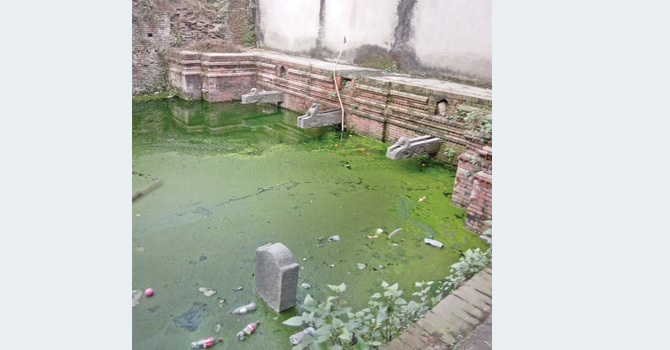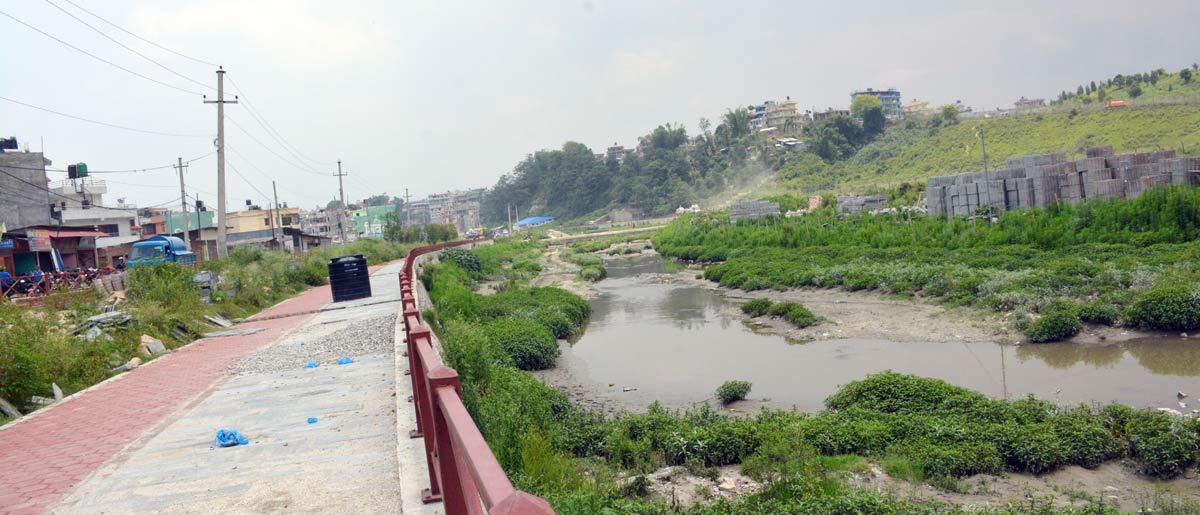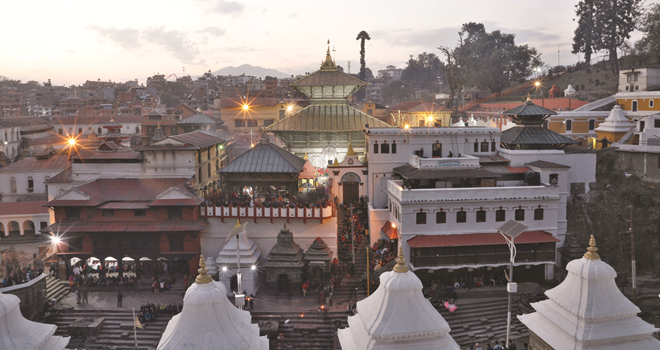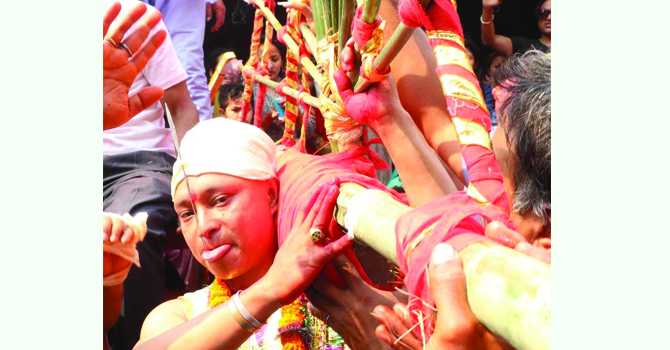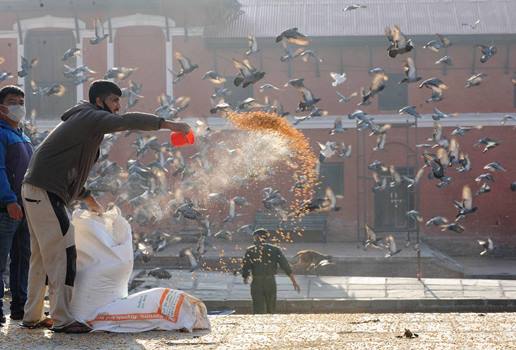Swasthani story recital from today

By Binu Shrestha
Kathmandu, Jan. 17: A month-long fasting and story reading of Swasthani is beginning on Monday.
During Swasthani, the devotees fast for a month, worshipping Goddess Swasthani, reading Swasthani Bratakatha (story of the Goddess) and taking only one meal a day.
Because of growing COVID-19 cases across the country, only over one hundred devotees, both men and women, are set to fast on the bank of the Sali River at Sankhu, north-east of Kathmandu, this year.
Sankharpur Municipality has decided to limit this year’s festival by allowing only regular worship and the month-long fasting at the Sali River.
Issuing a press statement, the municipality said that producing COVID-19 vaccination card was mandatory for visitors to enter the Madhav Narayan temple premises located on the bank of the Sali River.
Mijendra Kaji Shrestha, president of Madhav Narayan Swastani Fasting and Salinadi Management Committee, said that only vaccinated devotes are allowed to take part in fasting in Salinadi this time.
Altogether 100 devotees, 83 women and 17 men, are taking part in fasting process this year, he said.
“We have managed to maintain physical distance among the fasting devotees and we are trying to manage a YouTube online for the devotees,” he added.
He further said “We are only focusing to manage fasting process preventing infection among the fasting men women, so we like to urge all devotees who are planning to visit Salinadi festival not to visit it this year”.
The Sali River has a special significance during this fasting as it is also mentioned in the Swasthani Bratakatha (story) as a sacred, healing and wish fulfilling place.
As mentioned in the story, a leprosy victim Chandrawati regained her health, social status and good fortune after worshipping goddess Swasthani and taking holy dips here.
Men and women of all ages observe this fasting wishing for a prosperous life, perpetual luck and happiness.
The whole month falling in January and February, is dedicated to Goddess Swasthani. The fasting is observed in the Kathmandu Valley, Terai belt and hills by the Hindus.
Prakash Shrestha, a cultural expert from Sankhu, said that the devotees follow strict rules during the fast. Throughout the month, every fasting devotee eats only a single meal each day which should be free from salt.
The devotees walk barefoot and are not allowed to wear any cosmetic items. They take holy dip at the Sali River every morning and visit different shrines barefoot
They are required to live on strict diet of rice, carrot, bean, ginger, ghee, chaku (hardened molasses), sugar, beaten rice and milk. On the day of Ekadasi, they can eat banana, yam, sugarcane and orange.
The story of Swasthani mentions King Nabaraj ruling the country called Labanya. Labanya is the old name of Sankhu which once was a separate kingdom, Shrestha said.
Nabaraj became a king after his mother observed Swasthani fasting. His consort Chandrawati became a leper after insulting goddess Swasthani. Later, she became remorseful and worshipped the goddess which made her healthy again, according to the story.
There stands a large rock at the centre of the Sali River which people worship as the symbol of Chandrawati.
Recent News

Do not make expressions casting dout on election: EC
14 Apr, 2022
CM Bhatta says may New Year 2079 BS inspire positive thinking
14 Apr, 2022
Three new cases, 44 recoveries in 24 hours
14 Apr, 2022
689 climbers of 84 teams so far acquire permits for climbing various peaks this spring season
14 Apr, 2022
How the rising cost of living crisis is impacting Nepal
14 Apr, 2022
US military confirms an interstellar meteor collided with Earth
14 Apr, 2022
Valneva Covid vaccine approved for use in UK
14 Apr, 2022
Chair Prachanda highlights need of unity among Maoist, Communist forces
14 Apr, 2022
Ranbir Kapoor and Alia Bhatt: Bollywood toasts star couple on wedding
14 Apr, 2022
President Bhandari confers decorations (Photo Feature)
14 Apr, 2022


